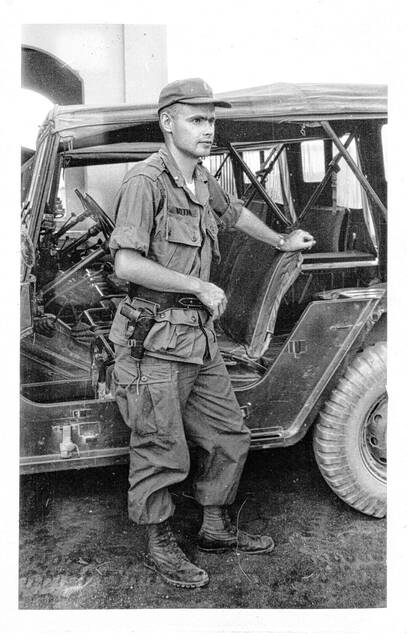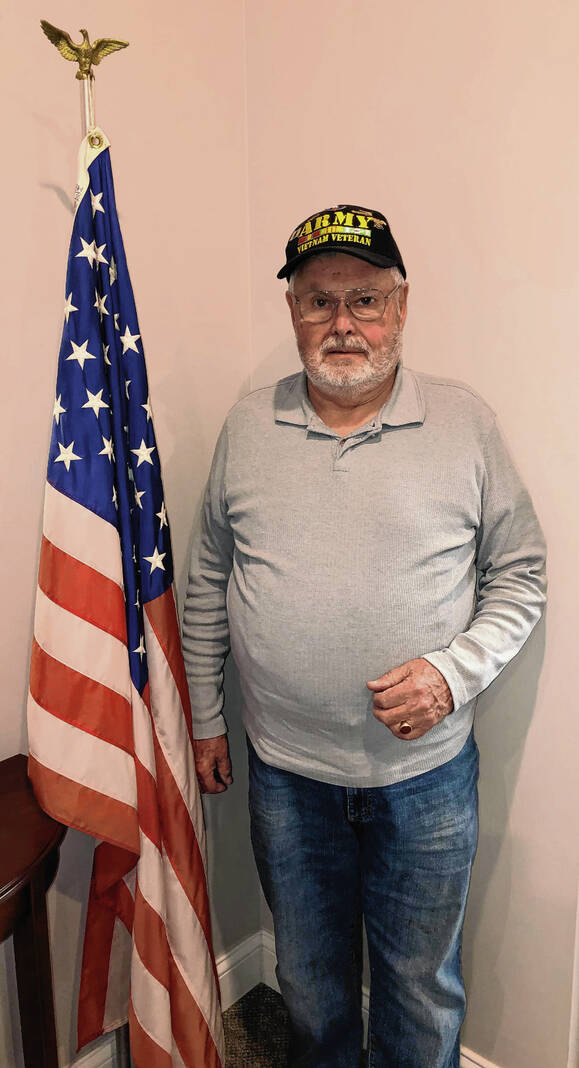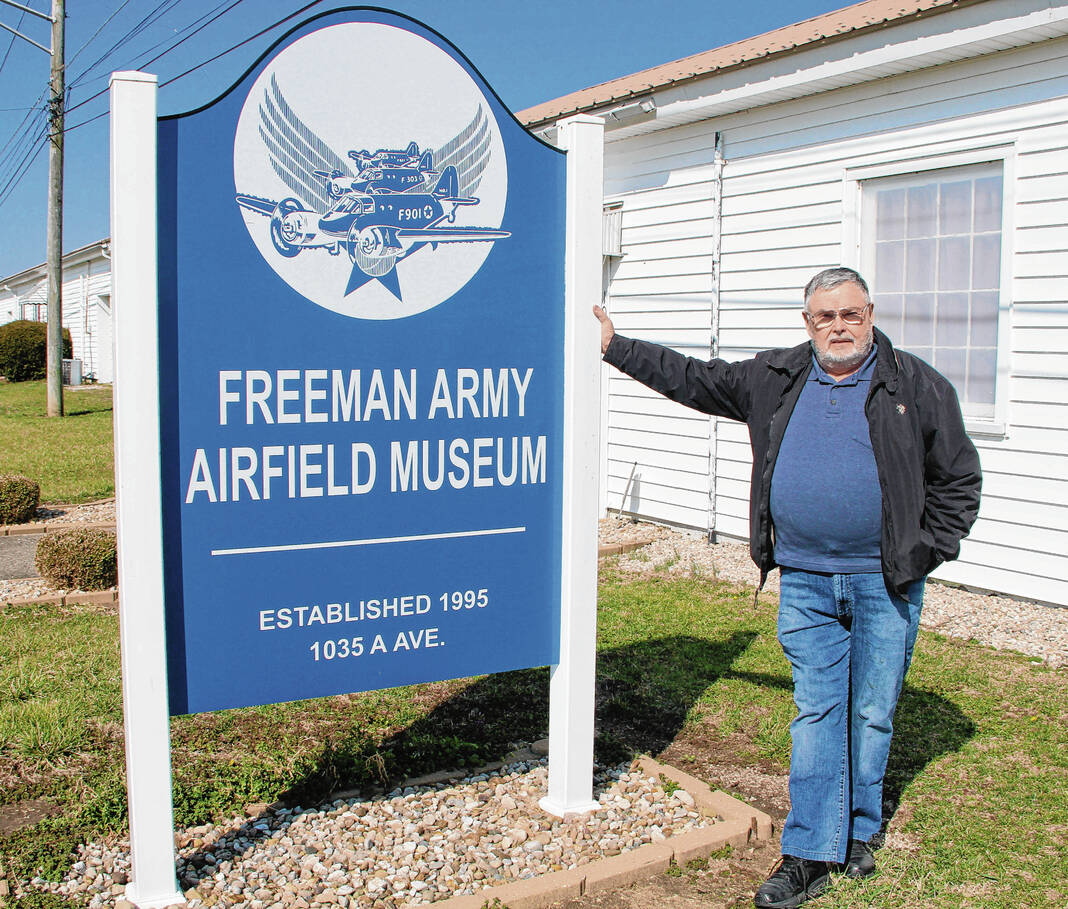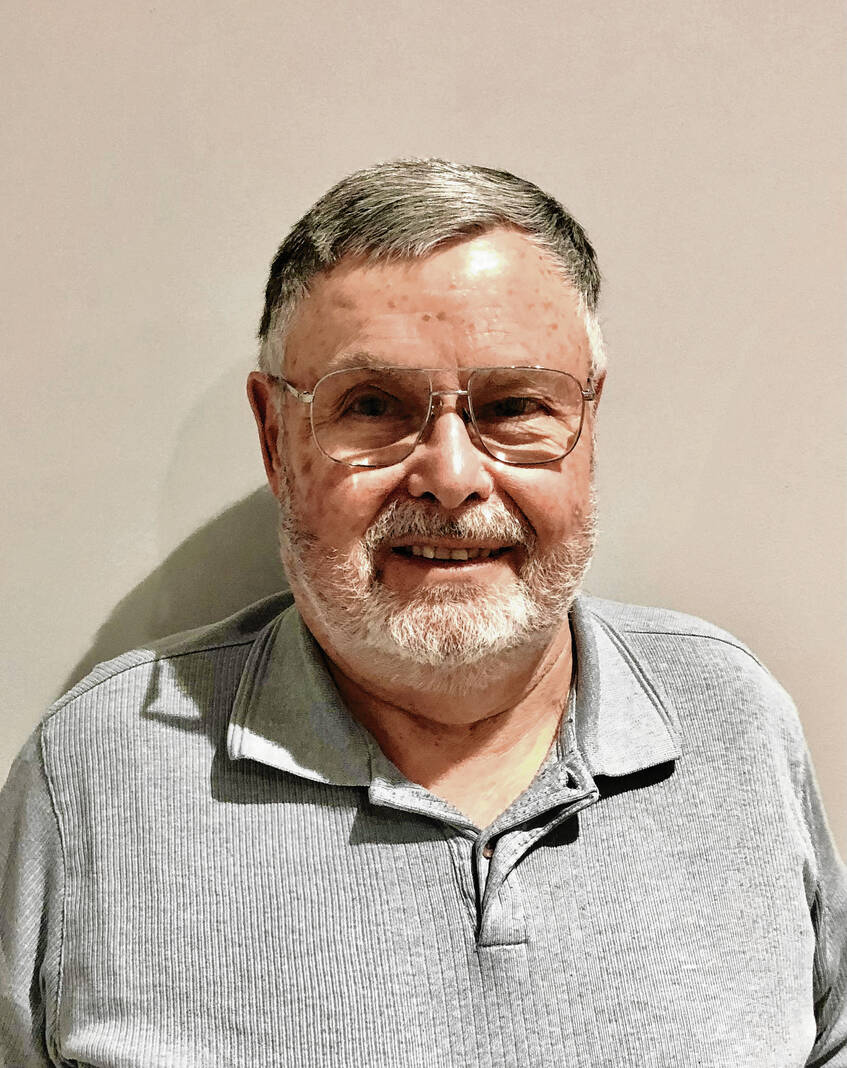
Seymour resident Larry Bothe is pictured in Nha Trang, South Vietnam, in 1966. At the time of the photo, Bothe was a first lieutenant, and the Jeep belonged to his commanding officer.
Submitted photo

Larry Bothe of Seymour wears his Army Vietnam veteran cap, adorned with military pins and his reserve captain bars.
Lori McDonald | The Tribune

Vietnam veteran Larry Bothe is pictured outside Seymour’s Freeman Army Airfield Museum, where he is the curator.
Lori McDonald | The Tribune

Bothe
Lori McDonald | The Tribune
Vietnam War veteran Larry Bothe spent one year in Nha Trang serving in the U.S. Army, and during that time, he was responsible for providing supply support for soldiers and units in field services.
Bothe, 79, has lived in Seymour for more than 30 years and moved here for his job at Home Products International Inc.
He grew up in a suburb of Philadelphia, Pennsylvania, in a town called Oreland. He graduated from Upper Dublin High School in 1960, then attended Lehigh University, where he majored in business administration and was in the Reserve Officer Training Corps.
Lehigh University, where his father graduated from, was best known for being an engineering school, and Bothe enrolled in engineering, but he didn’t have the math background, so he switched to business, he said.
“Lehigh was a land grant college that means if you go there, you have to take ROTC for two years,” Bothe said. “After two years, you can opt out of it or you can volunteer to complete the next two years, then you graduate and become a commissioned officer.”
Bothe was at home after his sophomore year of college and his father asked if he was going to sign up for the advanced ROTC next term, but his answer was no because he wasn’t too fond of ROTC.
“Back then, they had the draft and my dad told me I wouldn’t get drafted while in college because everyone automatically gets a college deferment,” he said. “But he told me the minute I graduated, they were going to draft me because I was going to have a degree in business administration and it’s a non-essential occupation.”
Bothe said things in Vietnam were just starting up, and it was apparent the United States would be brought into it. His dad told him after he got drafted, he’d get a rifle put in his hand and sent out into the jungle.
“My dad asked, ‘Is that what you had in mind?’ so I said I would think about that,” he said. “I thought about it for two days, then I called the ROTC department at Lehigh and told them I’d like to volunteer for advanced ROTC after all, and they were glad I changed my mind.”
Bothe graduated from college in 1964 as a second lieutenant in the Army.
“After I graduated, they didn’t want me right away, so I was on call,” he said. “My father had a plastics company and I worked there in shipping until they called me to active duty in January 1965.”
Besides being an officer at graduation, Bothe could choose his branch of service, and he opted for quartermaster, which provides supply support for soldiers and units in field services, aerial delivery and material and distribution management. That was a position in which he could put his business administration degree to use.
He was then sent to Fort Lee, Virginia, near Richmond for basic officer classes and to learn Army and Air Force Exchange Services, also called PX.
“They have the PX on bases to sell stuff to military people and their families, and in the Army, the food version is called the commissary,” he said. “For the purposes of PX, the Army and Air Force had combined to form AAAFES, the Army and Air Force Exchange Service.”
Bothe stayed at Fort Lee for a 14-week course and was then sent to Tobyhanna Army Depot in Pennsylvania near the Pocono Mountains resort area.
“The depot was run by civilians, and 2,500 Department of the Army civilians worked there, and there were 300 military members on the base,” he said. “I was told to work for a civilian, and I had a desk with a fancy nameplate, but he didn’t have anything for me to do.”
So Bothe began spending time at the depot’s small airfield and became interested in flying.
Bothe said when he went on active duty, he wanted the Army to formally teach him to fly, but back in those days, servicemen had to have 20/20 vision uncorrected, and Bothe didn’t qualify.
“You could still fly while wearing glasses, but it had to be as a civilian. Since then, the Army has changed that rule, and today, I would qualify,” he said.
“I went to the airfield and learned they had one plane and one pilot, but the plane never went anywhere,” he said. “The reason it was there was because the military commander was a full colonel, who was entitled to an airplane but never used it.”
Bothe met the pilot, John Baker, who told him he would teach him to fly through the flying club there. Baker taught him all of the things he could learn without flying alone such as cross-country navigation, radio communication and emergency procedures.
Finally, Bothe could fly well enough to go solo, but the day he was supposed to, it was too windy and then a windstorm damaged the plane. He didn’t get to fly solo before he went to Vietnam but went on to earn his pilot’s license after returning home.
While at Tobyhanna Army Depot, about 600,000 soldiers were being sent to Vietnam, and soon, Bothe and his pilot friend both received their orders to go to Vietnam and were sent over in December 1965.
“I was flown into the airport at Saigon and stayed there two or three weeks, and from there, I was sent to Nha Trang, South Vietnam, to work in the Army and Air Force Exchange Service at the depot level,” Bothe said. “They had PX stores where you could buy chewing gum, beer, snacks, candy bars, stereo equipment and lots of stuff.
“I was at the PX depot where all of the items were kept before being distributed to the stores and I reported to the major, who was the commanding officer,” Bothe said. “Later on, I ended up being in charge of the depot, and when people ask me what I did in Vietnam, my standard answer is ‘I was in charge of all the beer in northern II Corps.’”
The II Corps was a corps of the Army of the Republic of Vietnam, the army of the nation state of South Vietnam that existed from 1955 to 1975. It was one of four corps in the ARVN, and it oversaw the central highlands region north of the capital Saigon.
“I was stationed in Nha Trang the entire time I was there down on the coast, and it was beautiful and a resort area as far as being in Vietnam, except there was a war going on,” Bothe said. “It had beautiful sand beaches, and wealthy people had summer homes there on the water, but the war made it messy.”
He said in 1966, the fighting was up in the central highlands in the middle part of the country, so they weren’t being shot at, but they still had to be careful.
“You couldn’t run around outside at night in the town because there were Viet Cong sympathizers and you might not make it back,” he said. “I was in a relatively safe place, but we were supporting troops that were up in the bushes, and at one point, I worked for 88 straight days without a day off, so that was my payback for not working in Pennsylvania at Tobyhanna.”
He said soldiers were required to stay in the country they were serving in for a year, then they could be placed on a rotation to go back to the United States unless they had a hardship, but Bothe didn’t, so after he finished his tour, he went back to the United States.
“I got relieved from active duty right before Christmas in December of 1966, but my whole military obligation was two years of active duty, which I had already completed,” Bothe said. Then I had two years of active reserve duty and after that was placed on an active reserve list but never got called, so then I received an honorable discharge and I was out.”
The highest rank Bothe achieved in the armed forces was that of captain, to which he was promoted while serving his reserve time, not on active duty.
“Being in Vietnam taught me not everybody lives like we do and there’s really true abject poverty, not just having one television, which is the definition of poverty here,” he said. “It also taught me how to work 88 days straight, and when there’s adversary and a need, you have to step up, and I don’t think a lot of people understand that.”
